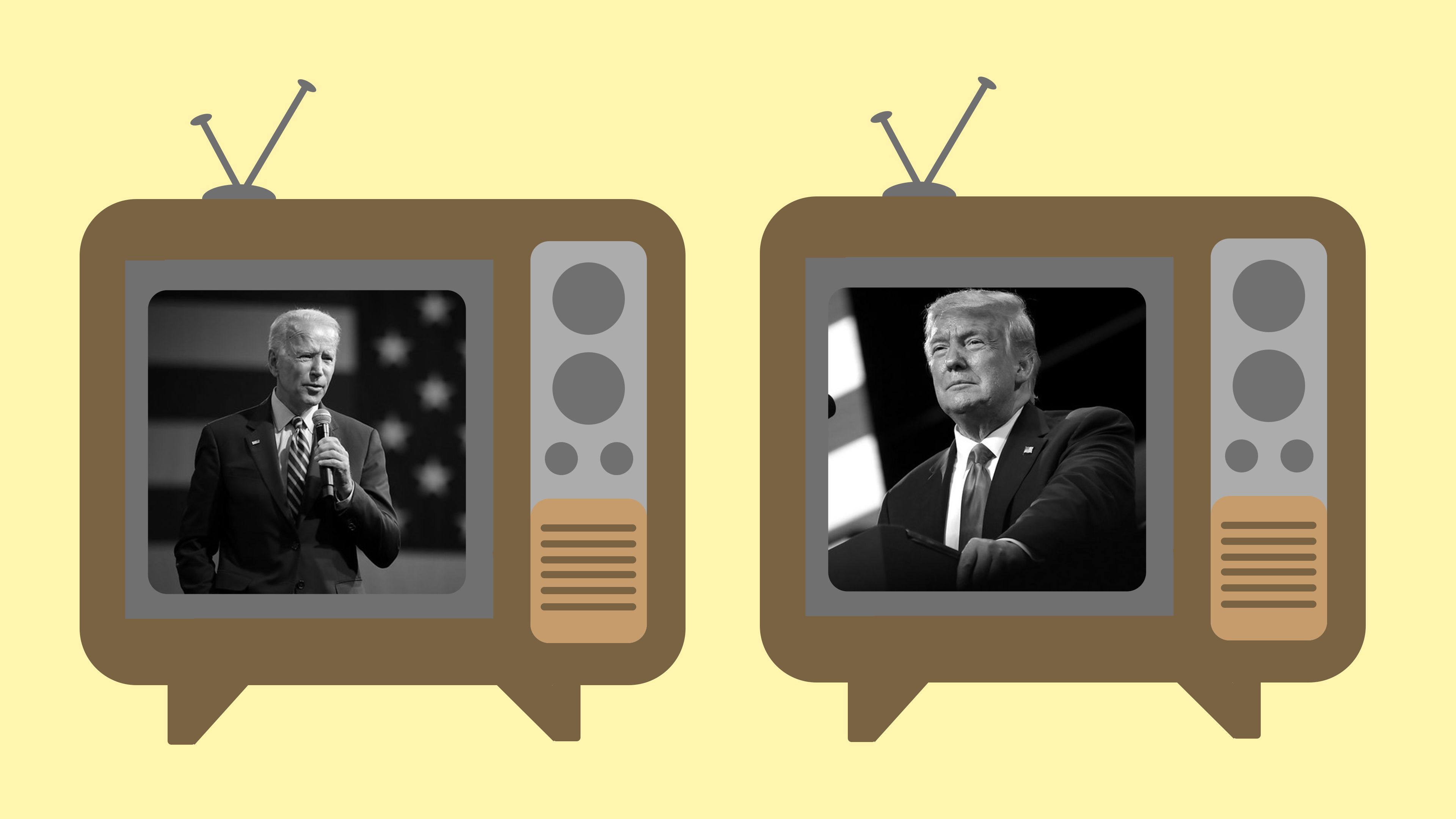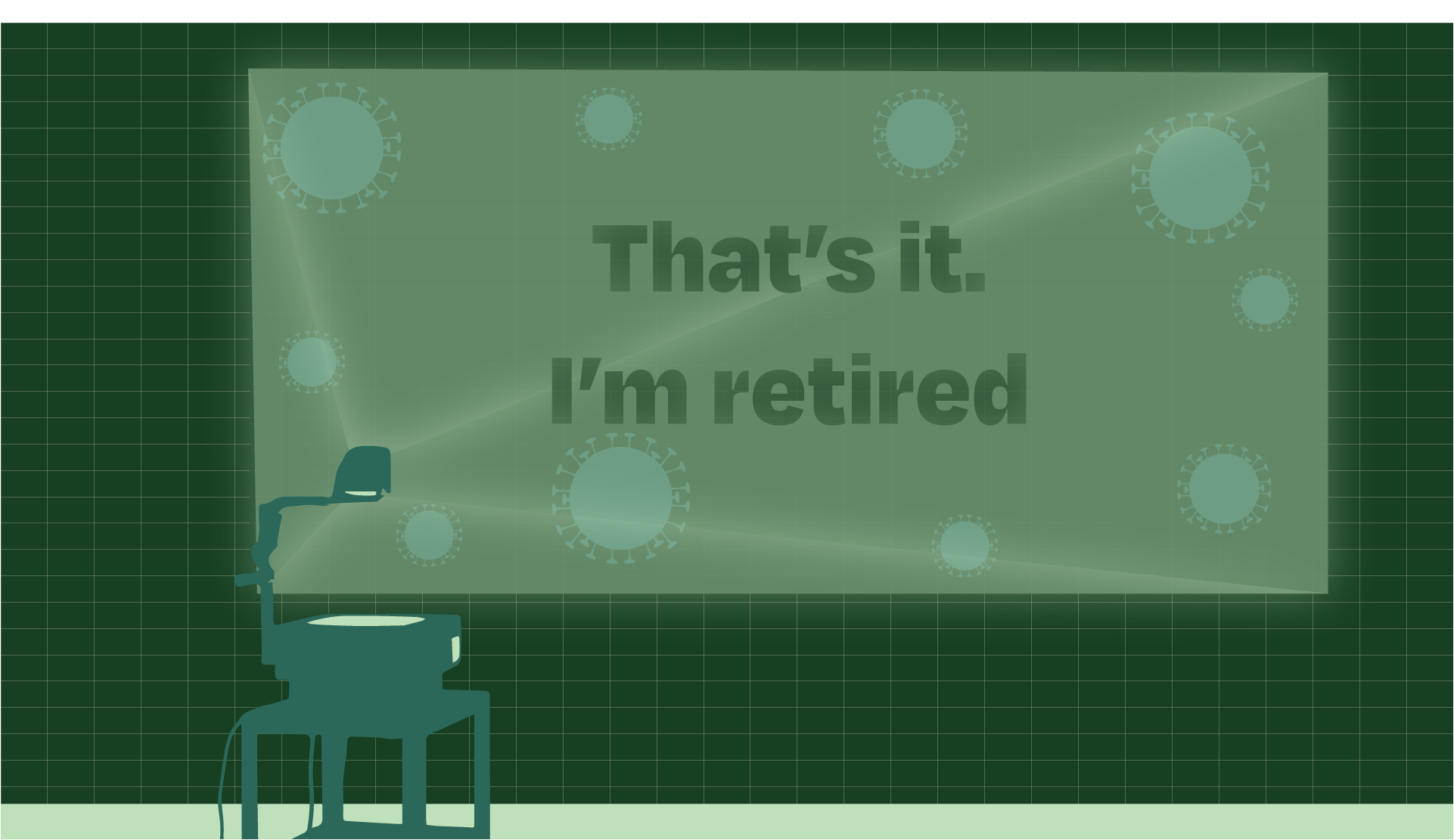
Presidential Debates Are Largely Meaningless and NBC’s Latest Mishap Proves It
Journalists have lost the plot and are playing into politicians’ hands.
NBC announced Wednesday morning, to much dismay, that it would host a town hall with President Donald Trump at the same time as Joe Biden’s town hall at ABC. The announcement came after Trump declined to participate in an online debate despite his positive COVID-19 diagnosis, and was followed by an uproar of concern and condemnation. Journalists around the country, including some who work at the company, criticized NBC for holding a town hall at a competing time, making the event’s main purpose — swaying undecided voters — nearly impossible.
However, the decision to host conflicting town halls may be further proof that presidential debates serve as theatrical boasts of power and knowledge to reinforce partisanship as opposed to persuade the undecided.
Presidential debates weren’t always somewhat meaningless political productions. In 1960, then-Vice President Richard Nixon squared off with Senator John F. Kennedy in the first televised presidential debate. Seventy million people watched the CBS broadcast that night, and while radio listeners gave the win to Nixon, the majority of TV viewers proclaimed the young Senator victorious over his opponent. The fact that Nixon, coming off a hospital stay, was underweight and sullen while the 43-year-old Kennedy was charismatic and affable almost certainly contributed to his victory. Polls showed that more than half of voters were influenced by the debates, with 6% saying they made their voting decision based on the debates alone. Months later, when it came time to cast the ballots, Kennedy secured the presidency, earning 49.7% of votes over Nixon’s 49.5%.
According to Bruce DuMont, a nationally syndicated radio talk show host and president of the Museum of Broadcast Communications, “politics and television changed forever” on the night of the debate. He asserts that, due to televising the political event, it was no longer merely about what a candidate was saying, but also how one looked saying it. “The use of television to transmit an image or idea instantly to millions soon made presidential campaigns more of a spectator sport,” DuMont said. Nearly 50 years later, when Barack Obama dueled John McCain for the Oval Office in 2008, the Pew Research Center found that nearly two-thirds of voters (67%) said the debates were “very” or “somewhat” helpful in their decision-making.
But the year is no longer 1960 or even 2008. A number of larger studies and surveys published since have demonstrated that this is not strictly true anymore. The debates still function as a “spectator sport” but their impact isn’t what one may assume it to be. A 2019 Harvard Business School study that surveyed over 61 elections across nine countries found that debates didn’t shift the election outcomes. In a 2017 study, University of Pennsylvania researchers Mitchell S. McKinney and Benjamin R. Warner analyzed 22 academic studies on U.S. presidential debates held between 2000 and 2012. They found that the majority of voters don’t change their minds about which candidate they support based on their performance in a presidential debate. Instead, the researchers concluded that both Democrats and Republicans tend to view their party candidates more favorably following the debates. This, McKinney and Warner say, “reminds us that campaign debates are not zero-sum for candidates as both or all candidates on the debate stage might benefit from their debate performance.”
This begs the question: Do debates even matter anymore? It seems as though instead of catering to a seemingly undecided voter — one that is increasingly harder to find in 2020 — debates serve almost as extensions of campaign ads, largely providing material to support one’s confirmation bias as opposed to helping voters make a decision. Perhaps that’s part of the reason former Democratic presidential primary candidate Andrew Yang referred to American elections as reality TV during the closing statement of the 2019 Democratic Primary Debate. “With makeup on our faces, and our rehearsed attack lines, playing roles in this reality TV show,” Yang said. “It’s one reason why we elected a reality TV star as our president.”
The 2016 presidential election — one that drew more people to the columns of their newspapers and the news channels of their TVs — as Yang implied, didn’t have an impact on people’s initial assessments of the candidates. It merely increased TV ratings and gifted Trump billions in free advertising. In a University of Pennsylvania study from 2017, researchers Kenneth Winneg and Kathleen Hall Jamieson looked at debate watchers’ surveys to see whether the people who watched the record-breaking 2016 presidential debates between Trump and Hillary Clinton changed their minds about the candidates. Authors found that while the debates increased viewers’ voter knowledge, they had no effect “on assessment of either candidate qualifications or perceptions of whether candidates would threaten the nation’s well-being, if elected.” (Before the third debate, 50.3% of viewers saw Clinton and 63.4% saw Trump as the threat to national wellbeing. After, numbers changed to 50.2% and 63.2% respectively.)
So, if debates don’t have much sway anymore, why do journalists consistently partake in them, giving away free exposure to candidates? Professors Diana B. Carlin and Mitchell S. McKinney argued in their CNN op-ed that, for one, the debates are “the metaphorical equivalent of a presidential job interview.” They disagree with those calling to abolish this practice, as “it is unlikely that anyone would make a hiring decision without interviewing them, based only on some combination of the candidate’s resume, testimonials from family members, social media comments and scurrilous accusations from anonymous critics.” Second, with the 2020 election potentially being as close as it was in 2000 or 2016, every vote counts and even the smallest fraction of potential voters — primarily undecided voters — are important to reach out to.
This is where a town hall debacle comes in. While people have a hard time making decisions in a snappy, back-and-forth debate, a town hall is a unique format that allows bipartisan voters to compare the candidates in a way prepared debates do not. It at least tries to serve the original purpose of the debates by letting the undecided voters formulate questions and interact with the candidates themselves. Instead of listening to edited down talking points, rehearsed and rehashed over and over behind the cameras, voters can see how the candidates respond to questions they may have not necessarily planned for. NBC’s almost undemocratic decision to schedule a competing town hall goes against that purpose. Viewers now have to decide which candidate they’d rather listen to Thursday night.
And news organizations facilitated this highly-successful, polarizing reality television. Trump’s refusal to do a virtual debate had no credible justification to it. Instead, his obsession with ratings, blazing even amidst a pandemic that has killed over 215,000 U.S. residents, is making the news networks into puppets for his lead performance. And NBC is consenting to it. NBC is actively removing even the pretense of debate functionality by scheduling town halls at the same time, pre-enabling a Twitter storm of condescension to come once Trump’s town hall ratings overtake Biden’s. Because that’s what it’s ultimately all about for the president, as The Daily Beast’s Maxwell Tani, Asawin Suebsaeng, and Lloyd Grove write: Higher ratings. “He looks at this the same way he looks at attendance at his rallies versus the [turnout] Biden gets for his events,” one of the sources told The Daily Beast. “He obviously wants to blow Biden out of the water.” And although once there to fact-check and hold accountable, moderators today don’t even call out blatant lies during the debates or town halls anymore — that’s left to the general public to figure out for themselves.
Thus, if journalists and news organizations aren’t providing context during the supposedly most efficient transfer of information, what is the purpose of doing town halls or debates? Instead of letting incorrect facts fly, why don’t journalists fact-check them in real time and not just online or after the fact? Instead of allowing unending interruptions and unrelenting insults, why don’t they have full permission to cut a perpetrator’s microphone? Why bother when a candidate is, subtly or unsubtly, evading a straightforward question? NBC’s complicity in Trump’s refusal to partake in anything he doesn’t have full control over makes it seem more like a PR agency trying to advertise its capricious star client, than a bipartisan news organization serving voters correct information.
This scheduling is perhaps the most obvious proof that debates don’t function as intended. And journalists — knowing full-well how inefficient they are in changing the voters’ minds — are just there to ensure a relative euphony and simply cover an event, as opposed to actually moderating it. Instead of being a source of intelligence, NBC is a host, a provider, a venue, for an 1.5 hour-long one-man show of probable lies, deception, hypocrisy and, perhaps most predictably, incoherence.


